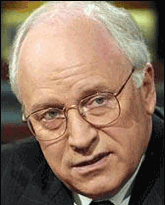
With the poise and purpose that has been drilled into them during the past four years, the cadets filed slowly into West Point’s Michie Stadium in crisp lines, standing at attention as they reached their seats. Here stood the graduates of the nation’s premier military academy, nearly a thousand of them, who would soon swear the oath of the United States Army and be commissioned as second lieutenants.
The class of 2007, the first to enter the academy after the invasion of Iraq, has chosen the motto “Always Remember, Never Surrender” and a crest that includes these words emblazoned above a scene that shows the Twin Towers and the Pentagon. Before long, it’s likely that many of these men and women will deploy to Iraq or Afghanistan, complex and asymmetric battlefields that have forced the military to rethink its approach to warfare. The nature of the war on terror has caused the staid military academy itself to revisit its curriculum. In Iraq and Afghanistan these soon-to-be officers will lead platoons, where they will be called upon to carry out their missions not just as soldiers, but as diplomats and cops and sometimes a combination of the three.
Vice President Dick Cheney, on hand to deliver this year’s commencement address, acknowledged that this crop of West Point grads is unique. “It is rare in West Point history for a class to have joined during war time and graduate in the midst of that same war,” he said. Addressing the academy’s graduates, the vice president, who drew a crowd of protestors outside one of West Point’s gates, relied on the same brand of doomsday rhetoric that has characterized his remarks since 9/11. “We know,” he told the audience at one point, that Al Qaeda is “working feverishly to obtain even more destructive weapons and using every form of technology they can get their hands on. This makes the business of fighting this war as urgent and time sensitive as any task this nation has ever taken on.”
Not only is the threat real, he warned, it’s immediate. “The timeline is no longer a calendar, it’s a watch,” he said, quoting a line used recently by Mike McConnell, the director of National Intelligence. Cheney then claimed that the “enemy likely has cells inside our own country.”
As Cheney told the graduates of the enemies they may soon face — terrorists “who oppose and despise everything you know to be right, every notion of upright conduct and character” — there were moments when it seemed that he had simply recycled an old speech from 2002. Indeed, long after most members of the Bush administration have distanced themselves from some of the more insidious claims that propelled the U.S. into war with Iraq, the vice president continues to repeat them as fact. At one point today he cited the link between Iraq and Al Qaeda (which has been thoroughly debunked) as the reason why the U.S. invaded Iraq. “America is fighting this enemy in Iraq because that is where they have gathered,” he told the West Point graduates. “We are there because, after 9/11, we decided to deny terrorists any safe haven.”
In a subtle irony, the vice president last addressed graduating West Point cadets the very year the class of 2007 entered the academy, in 2003. It was close to a month after the president declared an end to major combat operations in Iraq and Cheney crowed that “the battle of Iraq was a major victory in the war on terror.” At the time, two West Point graduates had been killed in Iraq. Since then an additional 49 tombstones have risen on West Point’s campus, marking the graves of graduates who were killed in Iraq, fighting a war the vice president had previously assured them they’d already won.















